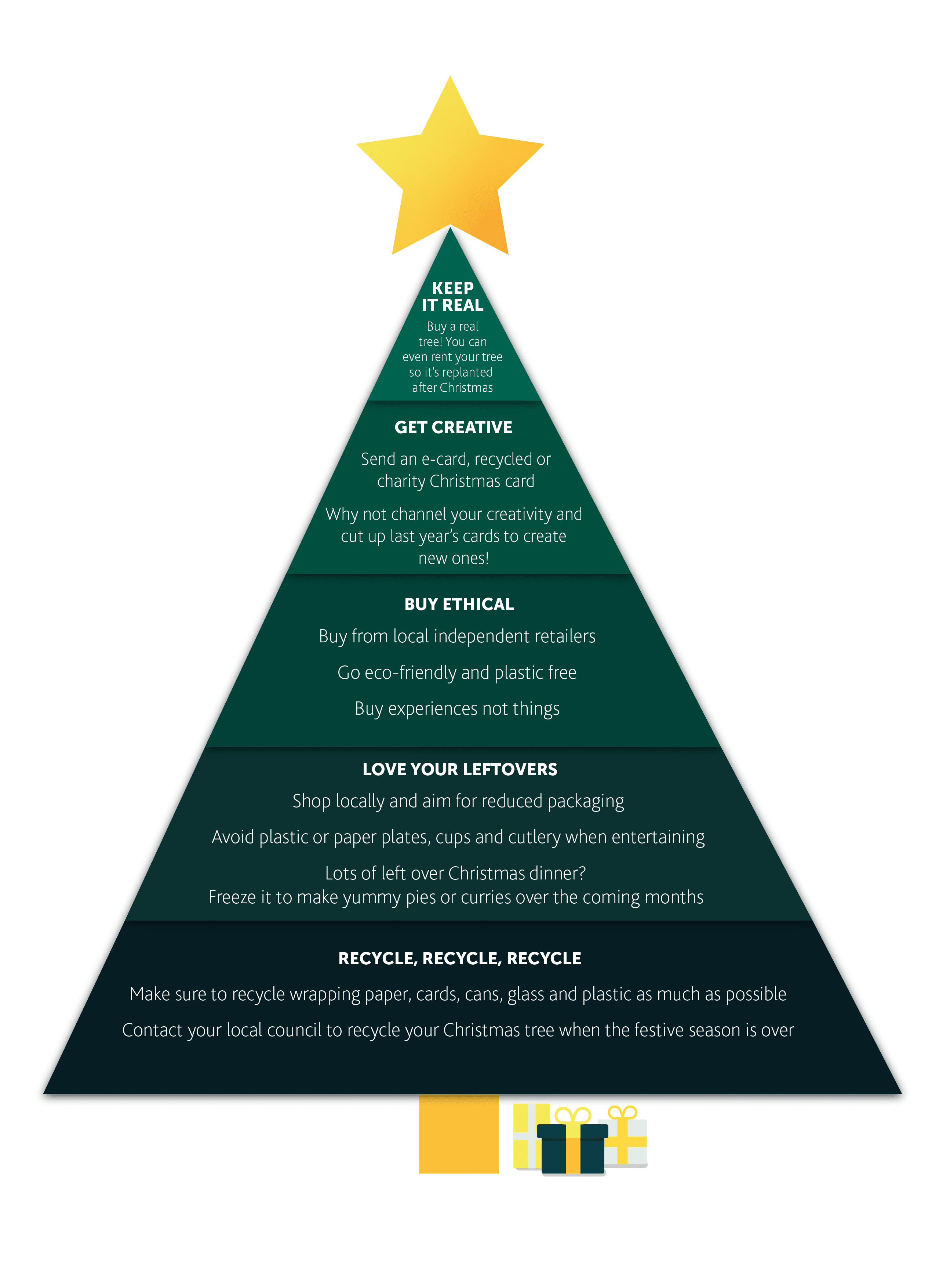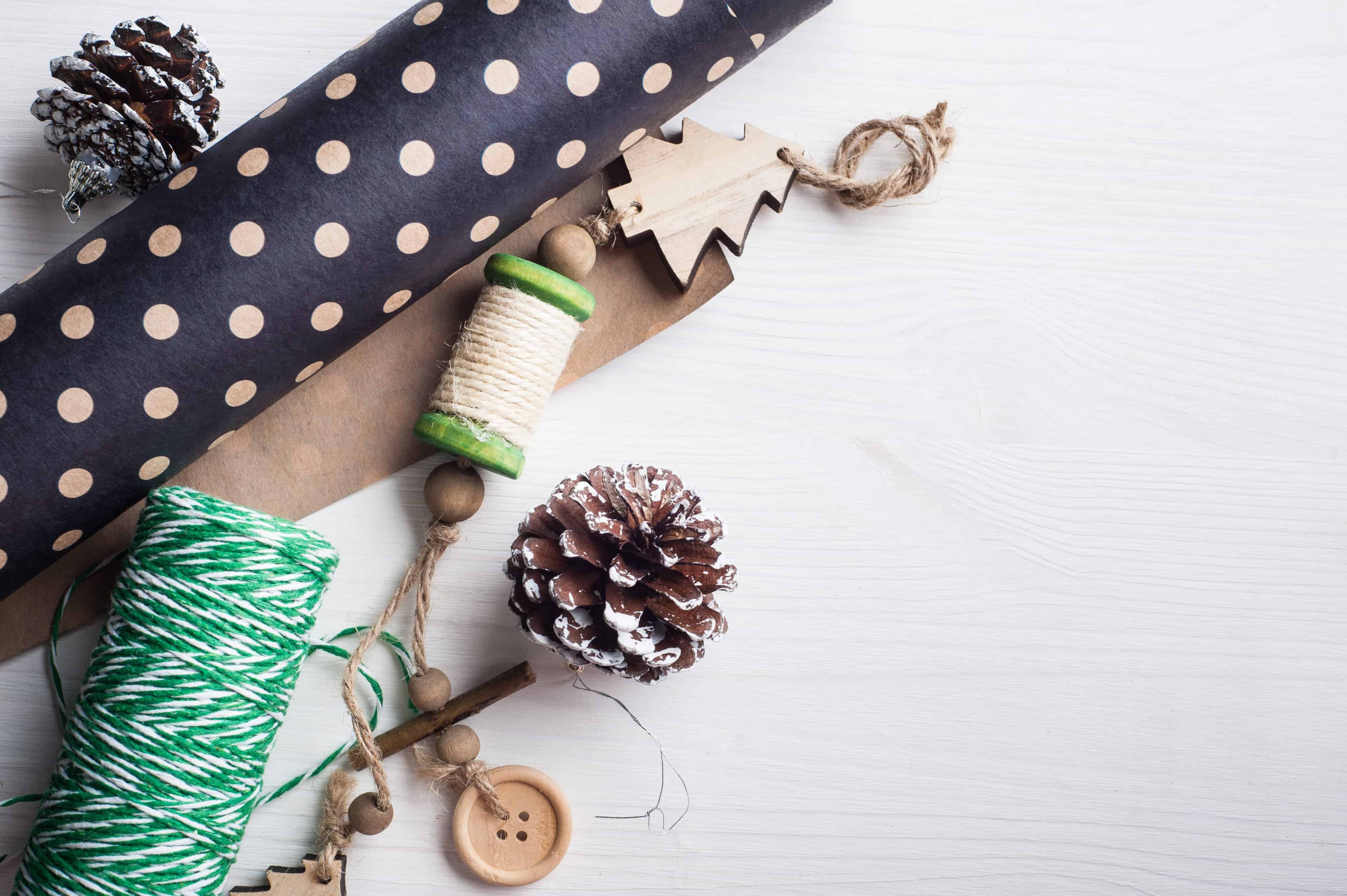To help you have the most sustainable festive period, our Sustainability Team have put together a few top tips for Christmas 2018…

Tree
- Buy a real tree. Although artificial trees last longer, they are made from plastic, not recyclable or from a renewable source, generate more carbon to produce and have probably been shipped long distances. Real trees remove carbon from the atmosphere and provide a habitat to wildlife whilst they grow and can be easily recycled after the festive period.
- When buying a real tree consider where they have been grown and get one from a sustainable source. See the British Christmas Tree Growers’ Association which has over 400 Christmas tree growers registered or check for certifications such as FSC or Soil Association
- For an ultra-sustainable option, you could rent your tree! Your tree will come in a pot and be returned to the ground after Christmas – visit Superplants.co.uk
- 250 tonnes of Christmas trees are thrown into landfill after Christmas when they could be used for nutrient-rich biomass, compost or wood chip. Most councils will pick up your trees for you to recycle – contact your local council for more information. If your local council doesn’t provide pickups, take yours to the garden waste section of your local rubbish collection facility
Cards
- Every year, an average of 17 Christmas cards are produced per person in the UK – reduce the impact of this and consider whether you could send an e-card, purchase recycled or charity cards or even cut up last year’s cards to re-use
- An estimated 1 million cards are thrown away after Christmas so make sure you recycle your Christmas cards in January!
Gifts
- Think where you spend – buy local and from independent retailers
- Buy durable gifts that are built to last or why not gift an ‘experience’, such as theatre, dinner or a day out
- Avoid gifts wrapped in excess plastic and try plastic free alternatives
- Sponsor an animal or purchase a Christmas Bee Saver Kit from Friends of the Earth
- Check out more eco-friendly gift ideas here or have a look at Social Enterprise UK’s Christmas Gift Guide

Wrapping
- Opt for brown or recycled paper, recycled foil or newspaper whilst avoiding difficult to recycle products such as stickers, plastic tags and ribbons – why not try using string or raffia which is made from renewable bark
- Get creative by using scarves, jars, clay flower pots, old maps or pieces of nature to decorate. There are some great examples from treehugger.com.
- Wrapping paper makes up one of the biggest Christmas waste producers, with an estimated 277 miles of wrapping paper wasted every Christmas. If everyone recycled just half of the amount of wrapping paper waste produced, we would save 25,000 trees!
Food
- Shop locally, buy fruit and vegetables loose and aim for recycled packaging
- Avoid paper or plastic cups, plates and cutlery when entertaining
- Use the right sized pan for the food you cook and only boil the kettle with the amount of water you need
- Eat less meat – this year’s IPCC report stated that a massive reduction in meat and dairy consumption is one of the major ways we can halt global warning. Check out some great veggie Christmas recipes here and reduce your carbon footprint this Christmas
- Approximately 2 million turkeys, 74 million mince pies and 17.2 brussel sprouts are disposed of each Christmas – check out food sharing app Olio to connect with neighbours and reduce food waste
- Cut down on the plastic cling film and foil waste and try wrapping your leftovers with a sustainable, reusable beeswax wrap like these ones from Beeswax Wrap
Recycle! – According to recyclenow.com, English households throw out an additional 3m tonnes of rubbish over the festive period! Remember to try and recycle wrapping paper, cards, cans, glass and plastic where possible. If you don’t have a doorstep recycling service, you can take your waste to a local recycling bank and prevent as much as possible from going to landfill. See here for more festive recycling guidance
We hope that these sustainable tips have been useful!
Wishing you all a joyful festive season
